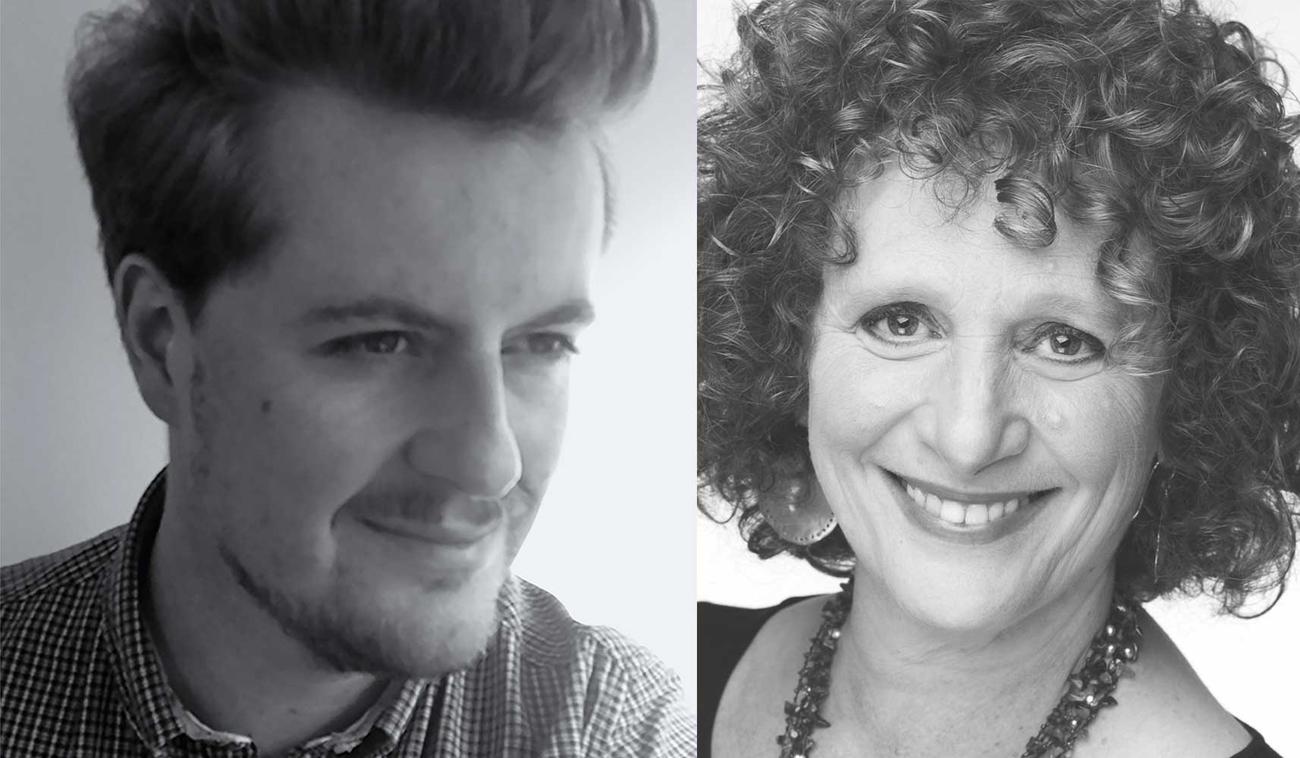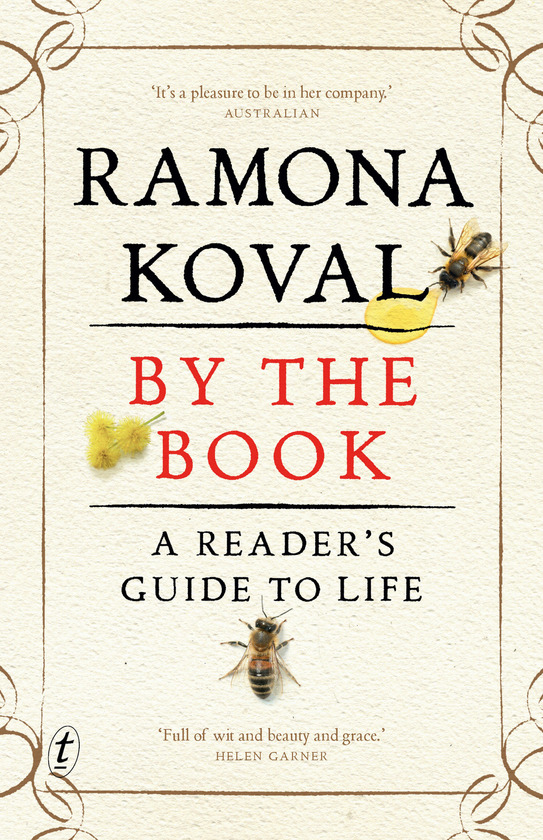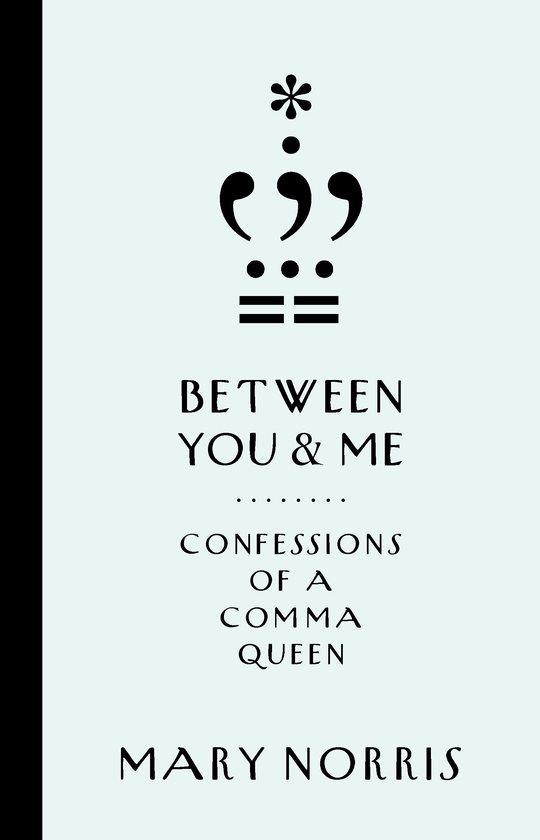
David Winter is the editor of Bloodhound, a new memoir by Ramona Koval. Here, David and Ramona continue their chat about writing, humour and moving on. You can read part one of this interview here.
DW: Bloodhound puts a lot of your interior life on display for the world, and in it you sometimes acknowledge that you ought to be ashamed of your bad thoughts. How do you imagine your readers—those people who’ve followed your career over the years, and were charmed by By the Book—will react to such candour? It often seems these days that, for all the exposure of people’s private lives, stating our less charitable thoughts is frowned upon. For telling us that you sometimes wished dead the man who raised you, are you going to be censured?
RK: I hope readers will recognise the honesty with which I tried to pursue all my former interests—honest conversations, honest opinions, honest reports—and see that it has been applied as much as is possible to the story of Bloodhound. I hadn’t given a moment’s thought to whether I would be censured until it was brought up by early readers such as yourself. Isn’t it one of the most important rules of writing anything, to first let it rip and let the chips fall where they may? Then you have something honest you can work with. Do I really mean these words? Do I really think they should be as sharp/wounding/uncompromising as this? If yes, then leave them there.
But since you bring up the point about wishing someone was dead—or at least wondering when they were going to die—I have done a quick survey of the people who were here at my house for dinner last night, all law-abiding, non-sociopathic or psychopathic, more or less well-adjusted adults over fifty. To a man and woman, they admitted having wondered the very same thing. It’s a small sample, I know, and they were waiting for dessert so they might have been biased towards agreeing with me, but maybe it is an attitude that many of us grow into?
DW: I will admit to a lot of things for dessert. This might be a good time to point out that while your search for your biological father takes you to harrowing places, there are also a lot of jokes along the way. In the book, Dad—the father who raised you—seems to use jokes to avoid discussing anything painful. You, though, seem to use them to get to the nub of a problem. It’s yet another difference in your personalities, isn’t it? (Also, maybe you could tell us a joke?)
RK: As you no doubt recall, we spent nearly four hours yesterday, side by side, poring over three versions of the page proofs of Bloodhound. I told you I would look for a joke involving an author and an editor. I tried. Nothing was funny enough. Nothing was suitable. They were all pretty pointed over the relationship, which always seemed to be a struggle of wills. That’s certainly not what I have found, so none said anything to me.
Then I realised that I almost never tell jokes. So why was I trying to find one to satisfy your need for me to do so? I was trying to comply with your request, trying to find a good answer to your question. I was trying not to be the kind of interviewee who takes issue with the question, and makes it hard for the interviewer.
I’m glad you found parts of Bloodhound funny. I did too, when I wasn’t anxious or weeping. I mostly found the absurd and silly situations I found myself or put myself in the funniest of all. But jokes? I think not, dear boy.
Also, I think that the idea of someone telling jokes puts me in mind of Dad, and I so much do not want to be like him that I fear telling a joke would compromise me. Weird but true.
DW: I’m amazed that you not only survived our marathon session but then went to an event where you interviewed no less a writer than Michel Faber. Yes, my question was poorly phrased: I meant that he tells jokes as an avoidance strategy, whereas you use humour (not jokes) to survive or interpret difficult situations...
Can I quote a funny thing about editors that I saw the other day in a book we’re publishing alongside yours, in May? The book is Between You & Me: Confessions of a Comma Queen. I think you might like it.
‘The generation of writers who were hired by [New Yorker editor William] Shawn in the mid-seventies to write for [the magazine’s front section] Talk of the Town were often puzzled by some of his prohibitions. In addition to the usual bodily fluids—piss, shit, blood, and spit—he was squeamish about fish hooks, wigs, twins, and midgets…And in a story tabulating the cost of taking the subway to a movie and buying refreshments, the editors cut Junior Mints. When [author Mark] Singer asked why, the style editor, Hobie Weekes, told him, “A New Yorker writer should not be eating Junior Mints.” According to Ian Frazier, the sentence incorporating as many Shawn taboos as possible was “The short, balding man wearing a wig took his menstruating wife to a boxing match.”’
I like Junior Mints. Anyway, can you tell us about the first words you learned in your online Polish course, and the sentence they added up to? I still can’t figure out why those words, instead of ‘Where is the train station?’ or ‘My name is Ramona.’ Are you fluent in the language now?
RK: You are right—I think I will like Between You & Me. All this editing we have been doing for the last few months is making me neurotically particular. I find myself correcting people’s conversations, Twitter updates and Facebook feeds. And people in shops, doctor’s offices and at the dentist. It’s very annoying for them, and it makes me look demented.
My first steps with Polish were on a Let’s Learn Polish, or similar, website. As with many language lessons, you first learn words that sound almost exactly like those in your own language: ‘film’, ‘gauze’, ‘garage’ and ‘hyena’. So I could say something about filming a gauze-wrapped hyena in the garage, but nothing useful.
This is reminding me of my Yiddish lessons. Before I joined a class I found an ancient teach-yourself book. Two of the sentences you could learn were: ‘Please be careful, sir, I think you may be driving us off a cliff.’ And the more mysterious: ‘Excuse me, I have eaten your potatoes.’
Back to Polish: I have found that the only good way to learn a language is to engage a teacher. I meet my Polish teacher each week in a coffee shop. It gets me out of the house.
It is the hardest language I have tried to learn. Russian is similar, it has a different alphabet, but it doesn’t have the weird sounds that Polish has. If you saw the rules of Polish, the ways words change according to their cases, and this applies not just to the verbs but to nouns as well (it seems that whenever I think I have the hang of something, there’s a new rule I am taught which throws everything into confusion), you’d believe me when I say I will never ever be fluent in Polish. I will always sounds like a badly educated foreigner.
But I can now write emails in Polish that are good enough to be comprehensible to others, and I can decode the replies. I can recognise the words that are parts of speech and look them up. I am a demon user of translator apps. And Robert Dessaix has just sent me a Polish translation of his book As I was Saying, Jak juz mowilem (with a funny line through the l, a dot on the z and an acute accent on the o), and I have promised myself to get to the stage of being able to read it by the end of the year.
DW: It’s always handy to be able to apologise in a new language for stealing carbs. I met Robert Dessaix at the Sydney Writers’ Festival and he told a hilarious story about how polite French people don’t blink at the phrase ‘baise-en-ville’, describing an overnight bag. Literally, it means ‘fuck in town’, so somewhere in France right now there’s probably a lovely old lady wondering where her sex bag is. Languages are full of these idiosyncrasies, or maybe it just proves that the French really are a lot more relaxed about people having affairs.
Do you feel part of a community of local writers? I know you know many, but what does that mean when you start drafting an intensely personal story like Bloodhound?
RK: That ‘lovely old lady’ could well be packing for a night of steamy sex in the capital, and not be perturbed in the slightest. I first wrote ‘in the slightest perturbed’ but then I thought you’d prefer it the other way. I’m not sure what the rules are, but I know you are.
I did meet some local writers when I was researching Bloodhound and renting a room which I shared with another writer at Glenfern, the local National Trust house with writers’ rooms. We all met for lunch once a month in the downstairs room and the idea was to talk about the work but I fear I just looked gloomy and said I’d been watching archival interviews with Holocaust survivors and they more or less let me be.
I didn’t show anyone what I was writing because for the longest time I had no idea what I would find and where I would end up. I had so many strands, so many stories that my hands were full. And I had spent so many years reading other people’s books and talking about other people’s experiences, I just wanted to use the time I had to do my own work. I probably wasn’t the most collegiate of writers.
DW: Ramona, here I am, six days after our last exchange. It feels like a long time: we’ve gone through all the final changes to Bloodhound, an extra read-through, jacket and prelims, and so on...I’d just sent the print order when Danielle Wood (a wonderful author whom I’ve worked with on a few books) sent me this piece from Slate. It’s a bit like our conversation here, except more polite (save for the scatological stuff). I particularly like the comment about experienced editors not imposing themselves upon manuscripts.
Anyway, at this stage in a book’s life I take a deep breath, then move on to all the other titles I’ve got on the go. But you, as the author: this is the book and, now that it’s gone to print, you’re officially between projects. How does it feel? Is it time to start a new one, or to focus on other things for a little while?
RK: Yes, it’s true—I’m now officially between projects. Or really, I’m at the end of the plank and I have nothing to dive into yet, save some journalism and some grand-mothering (my sixth is due at the end of June). I love the journalism, the way I can get immersed in one thing for a few weeks and then find something else and get immersed in that. Not like Bloodhound, which has had me by the throat for years now. Look at that imagery I’m using, death by plank-walking and by throat-grabbing. In a way, I’ve lost my reason for sitting at my desk each day. Or maybe I’ve simply lost my reason?
Of course, when I have a big project, I can’t bear doing journalism, taking me away from my one big obsession, making me feel like a dilettante.
Did you feel you had to resist the desire to impose yourself on my manuscript? I never felt that you crossed any lines, so you must have been splendidly self-controlled. Only once or twice I thought that your need for more niceness in the self-reflections you were editing might reflect either your youth or your Anglo-ish background or your more admirable qualities compared to mine.
DW: Congrats on your forthcoming addition to the family, Ramona! It’s a good excuse to be away from the desk for a bit—and you will have publicity duties and other writing commitments, so it will be a busy time as you search for the next big obsession.
I am younger than you, and Anglo (so unusual in publishing), but certainly not more admirable. It’s generous of you not to mention the elephant in the editorial grotto: likeability. One of the things I most admire about your book is that you take no prisoners; you’re not looking for sympathy from readers. Empathy, maybe.
RK [a week later]: I just wanted to say that I’ve cleared my desk of all Bloodhound-related files, books, photos, drafts, etcetera, and put them in a box on top of a bookshelf. It looks all clean and Danish now. Excited about the next phase. I dreamed I went to a writers’ festival and it was full of French artisanal cheese-makers...
Bloodhound is available from 22 April in bookshops and online.





